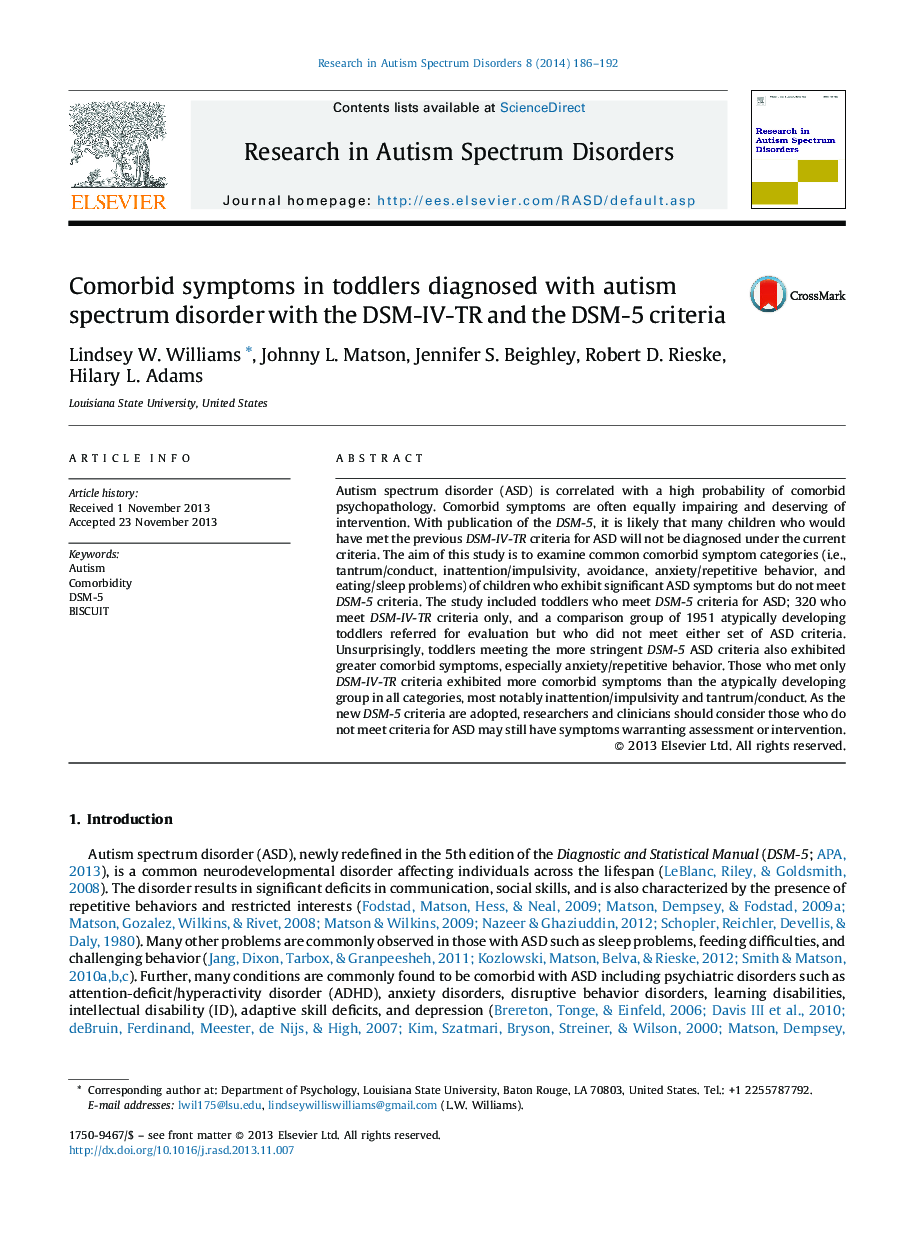| Article ID | Journal | Published Year | Pages | File Type |
|---|---|---|---|---|
| 10317144 | Research in Autism Spectrum Disorders | 2014 | 7 Pages |
Abstract
Autism spectrum disorder (ASD) is correlated with a high probability of comorbid psychopathology. Comorbid symptoms are often equally impairing and deserving of intervention. With publication of the DSM-5, it is likely that many children who would have met the previous DSM-IV-TR criteria for ASD will not be diagnosed under the current criteria. The aim of this study is to examine common comorbid symptom categories (i.e., tantrum/conduct, inattention/impulsivity, avoidance, anxiety/repetitive behavior, and eating/sleep problems) of children who exhibit significant ASD symptoms but do not meet DSM-5 criteria. The study included toddlers who meet DSM-5 criteria for ASD; 320 who meet DSM-IV-TR criteria only, and a comparison group of 1951 atypically developing toddlers referred for evaluation but who did not meet either set of ASD criteria. Unsurprisingly, toddlers meeting the more stringent DSM-5 ASD criteria also exhibited greater comorbid symptoms, especially anxiety/repetitive behavior. Those who met only DSM-IV-TR criteria exhibited more comorbid symptoms than the atypically developing group in all categories, most notably inattention/impulsivity and tantrum/conduct. As the new DSM-5 criteria are adopted, researchers and clinicians should consider those who do not meet criteria for ASD may still have symptoms warranting assessment or intervention.
Keywords
Related Topics
Life Sciences
Neuroscience
Behavioral Neuroscience
Authors
Lindsey W. Williams, Johnny L. Matson, Jennifer S. Beighley, Robert D. Rieske, Hilary L. Adams,
